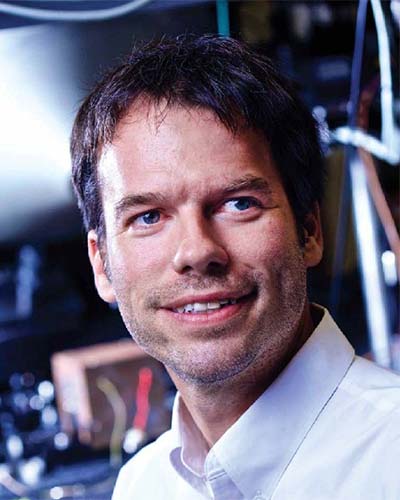
Recipients of the Gordon and Betty Moore Foundation Fundamental Physics Innovation Awards
The Gordon and Betty Moore Foundation Fundamental Physics Innovation Awards hope to stimulate ideas on innovative ways in which emerging technologies can be used to address pressing problems in fundamental physics. The awards support a variety of ways to bring people together to discuss and collaborate on ideas to advance fundamental physics as described in the Scientific Scope.
Below, we recognize the recipients of the awards from each year with their corresponding abstracts.
Current recipients | Previous years: 2020, 2019, 2018
2018
Convening Awards
Alexander Sushkov
This workshop is dedicated to an in-depth discussion and sharing of scientific and technical knowledge around the subject of novel searches for ultralight dark matter candidates such as axions, axion-like particles, and dark/hidden photons. The meeting will bring together leading theorists and the experimental teams working on the Cosmic Axion Spin Precession Experiment (CASPEr) and the Dark Matter Radio (DM Radio) projects.
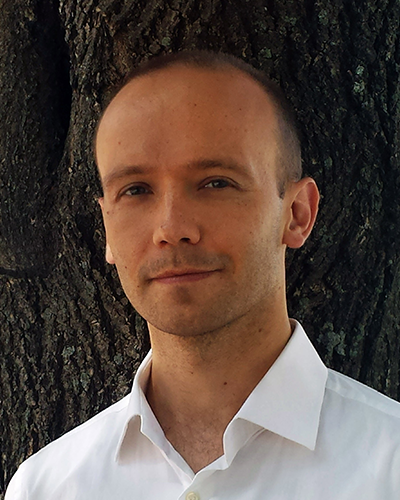
Visitor Awards
Catalina Curceanu
Dr. Catalina Curceanu, head researcher at the Laboratori Nazionali di Frascati of INFN in Italy, will visit the Institute for Advanced Study, Princeton, to discuss with Prof. Stephen L. Adler experiments testing collapse models in the underground laboratory of Gran Sasso (Italy). Her research aims towards a more profound understanding of the role of quantum theory in the Universe, and has implications for future quantum technologies.
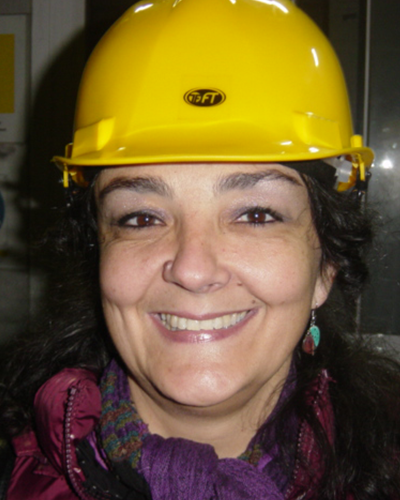
Andrew Jayich, University of California, Santa Barbara
Andrew Jayich, UC Santa Barbara Physics, will visit Jaideep Singh, Michigan State University, to present on using single trapped molecular ions to search for time-reversal symmetry violation that would indicate new physics beyond the standard model. We will discuss the practicalities of establishing a tabletop experiment that utilizes rare pear-shaped nuclei, e.g. radium or possibly protactinium, to create radioactive polyatomic molecules that would dramatically enhance sensitivity to new sources of time-reversal symmetry violation.
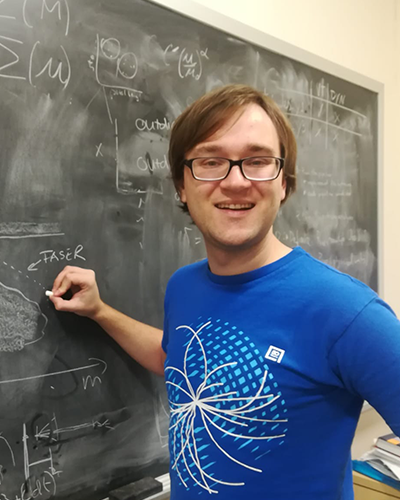
Jinjun Liu
Prof. Nick Hutzler at the California Institute of Technology and Prof. Jinjun Liu at the University of Louisville will collaborate on the investigation of polyatomic molecules as candidates for detection of time-reversal symmetry violation using novel high-precision laser-spectroscopy techniques and quantitative analysis of the spin-ro-vibronic structure of the target molecules.
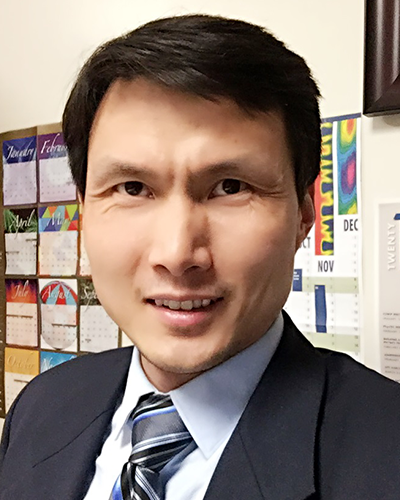
Derek Kimball
The goal of the collaborative efforts made possible by this visit is to develop new high-sensitivity table-top sensors to search for spin-dependent interactions that may be connected to dark matter. The visit encompassed two independent projects: (1) work with the group of Prof. Ron Folman on atomic magnetometers to be used as dark matter sensors in the Advanced GNOME (Global Network of Optical Magnetometers to search for Exotic physics); and (2) collaborative work with Prof. Yehuda Band to develop new sensors based on ferromagnetic gyroscopes that can, in principle, far surpass the sensitivity of existing devices searching for exotic couplings to electron spins.
